Telling Lies: Bowie and Online Music Distribution in 1996
Online music retail was thriving by 1996, thanks to sites like Music Boulevard and CDnow. But music downloads and streaming was more of a challenge — as David Bowie discovered in September 1996.
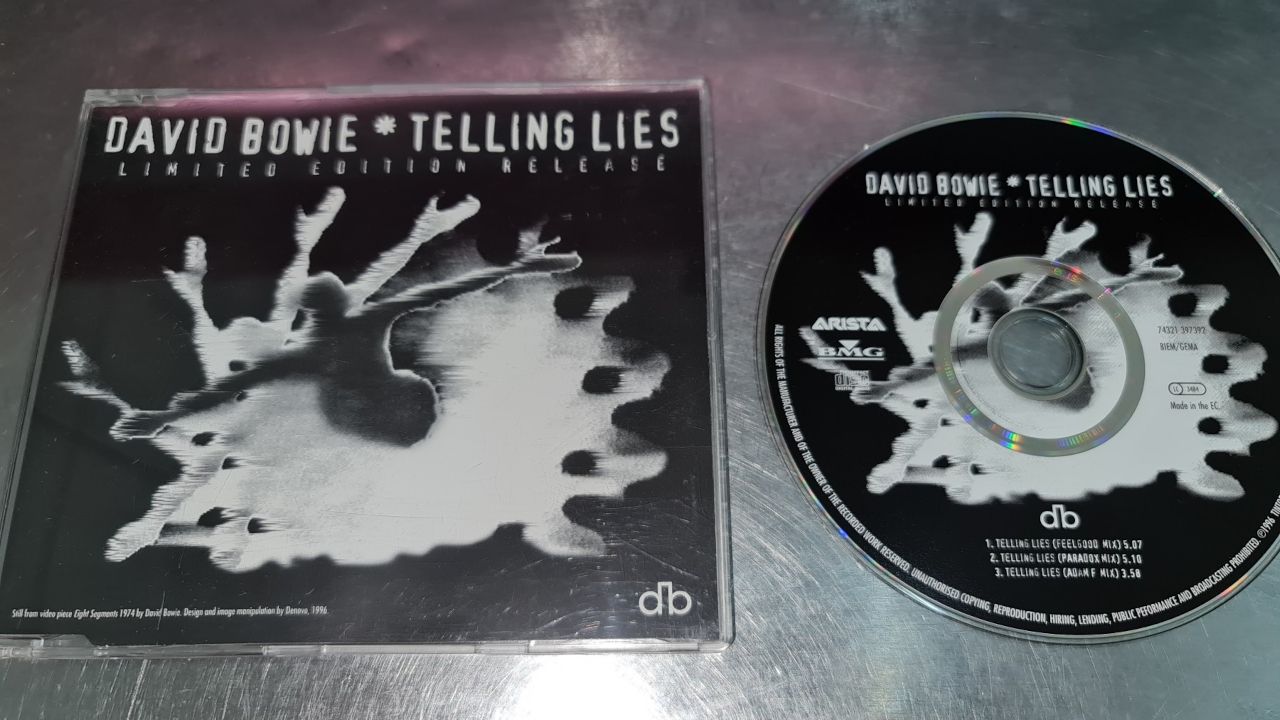
In an interview featured in the 1998 book “The Interactive Music Handbook,” Larry Rosen — CEO of an online music services company called N2K — provided his theory on how the internet would overhaul the music distribution system.
“The model that’s eventually going to prevail is one where the artist is going to finance her own record, produce it, and divide the distribution rights up.”
After explaining that the artist will no longer need to be signed to a record company for multiple years, Rosen said she would instead “go to a company like N2K and have us distribute the record electronically, or to all the people you have online in those particular areas, and we’re going to receive “X” percentage of these sales.”
So that was the goal of David Bowie’s digital partner, N2K: to distribute an artist’s music online and cut out the middlemen, a.k.a. the record labels. After all, the primary task of a record label was to distribute music, so surely they would no longer be needed when the internet matured?
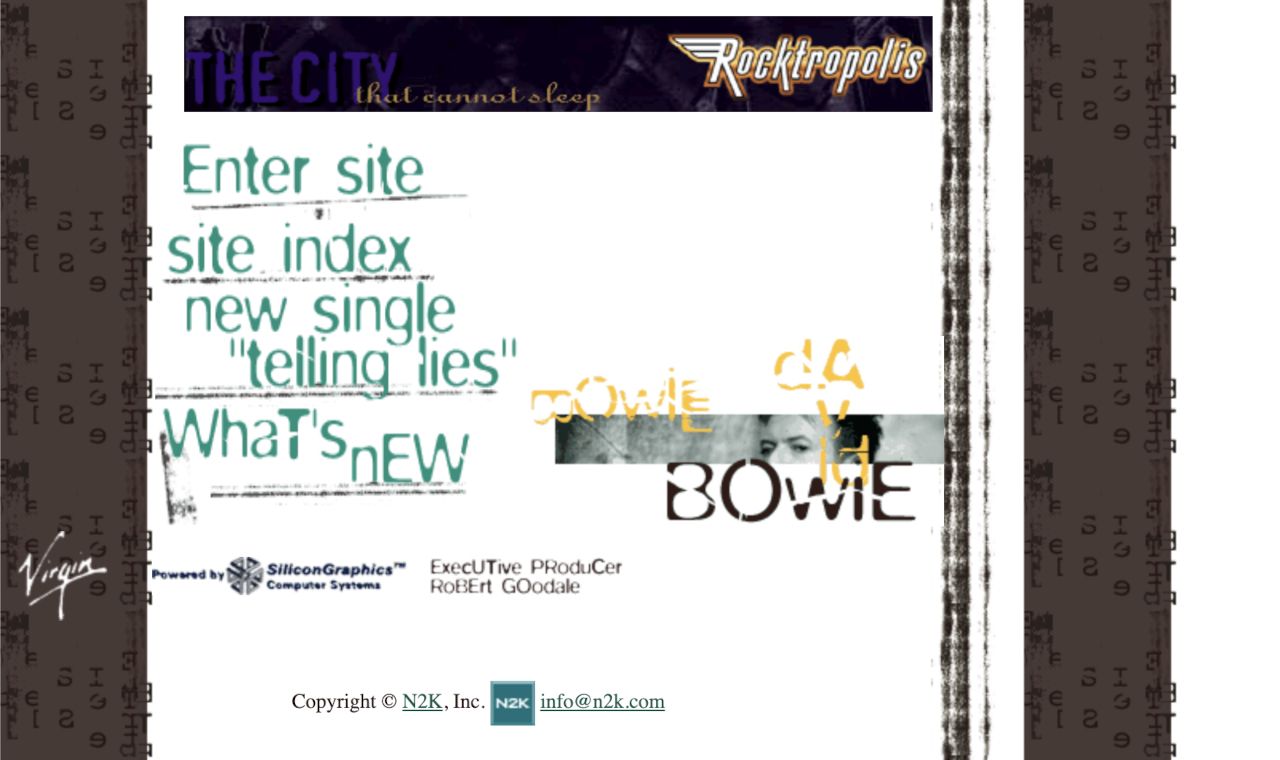
By 1996, the retail part of online music existed, but not the electronic distribution part. At that time, buying music online meant purchasing a CD — or some other physical format provided by a record label — on a retail website like Music Boulevard (owned by N2K) or CDnow (its arch-rival).
Although the pioneering Internet Underground Music Archive had proven that downloading music as a digital file was possible, the low bandwidth of the era made it hugely impractical. But Rosen thought that, eventually, records would be able to be “electronically transmitted” over the internet — “you would take those sounds and convert them into bits and send them to somebody on the other end, on a global basis, and they would store it.”
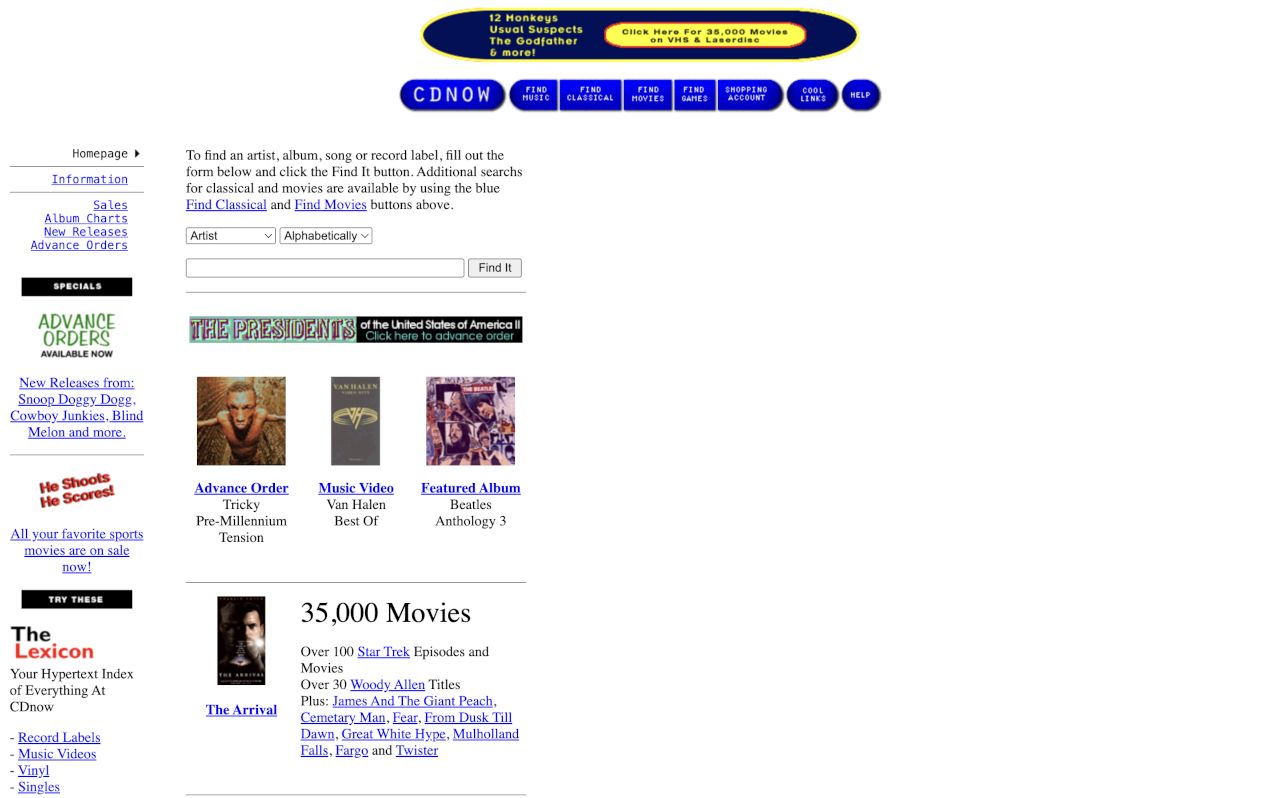
(Incidentally, IUMA co-founder Rob Lord became “the new Vice President of Rock Sites for N2K Entertainment” at around the same time N2K acquired Rocktropolis.)
Telling Lies
The first test of this theory with a major music artist was, naturally, David Bowie. In September 1996, Bowie’s latest single “Telling Lies” was made available as a free download on the N2K-produced website, davidbowie.com.
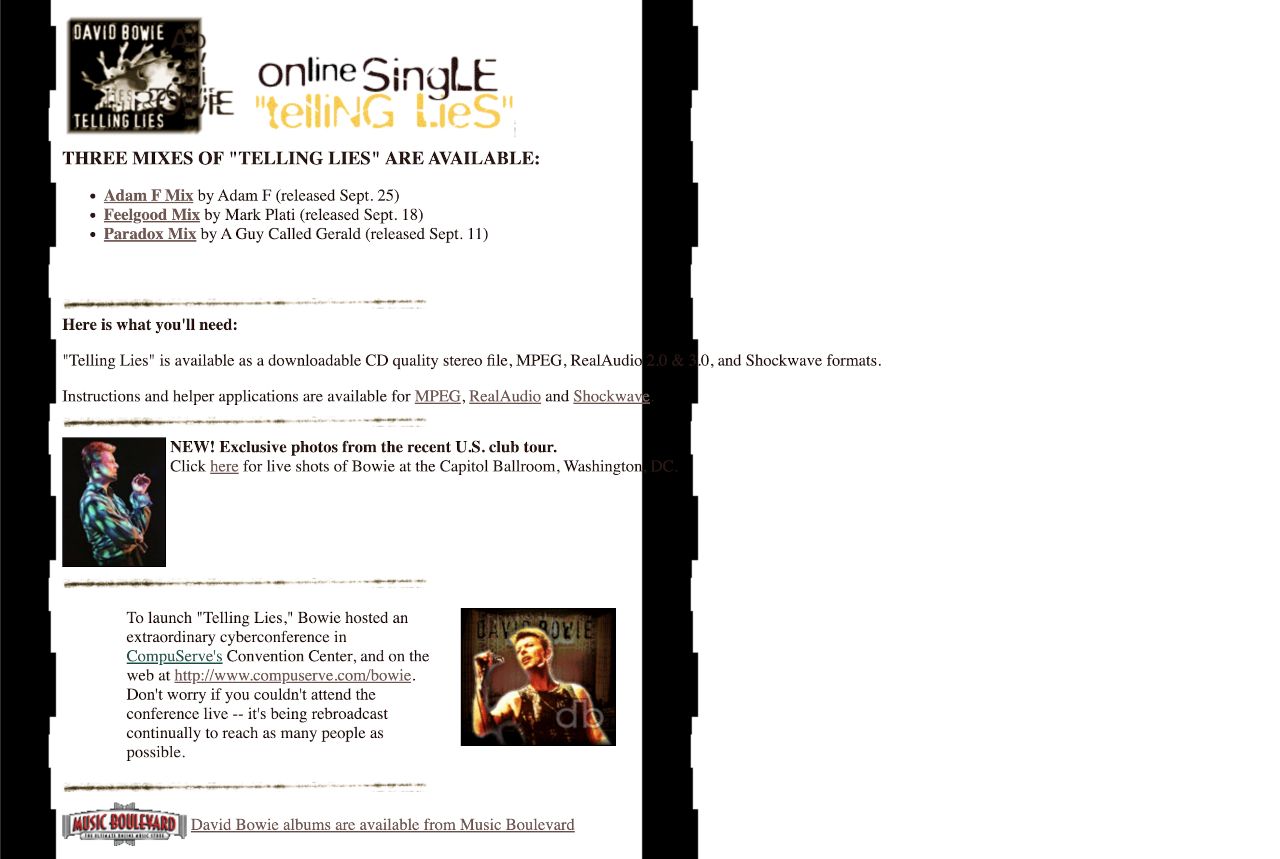
The song was uploaded to the site on 11 September, 1996, and two remixes followed later. MP3 wasn’t an established online music file format at the time, but fans could access the song in eight other formats, according to a later New York Times report. The easiest option was to stream the song on the site, using RealAudio or Shockwave audio. These were low quality files, to try and minimise buffering.
There were also mpeg versions available, probably MP2, although these too were relatively low quality. One user on the Bowie newsgroup reported three mpeg versions (5Mb, 3.8Mb and 1.3Mb). Another said she tried to download the 5MB version using AOL “and the download quit after about 2 hours and gave me only about 4.2 MB.” She was able to listen to “about 4 1/2 minutes of the song from this incomplete file,” but noted that “the sound quality seems pretty bad.”
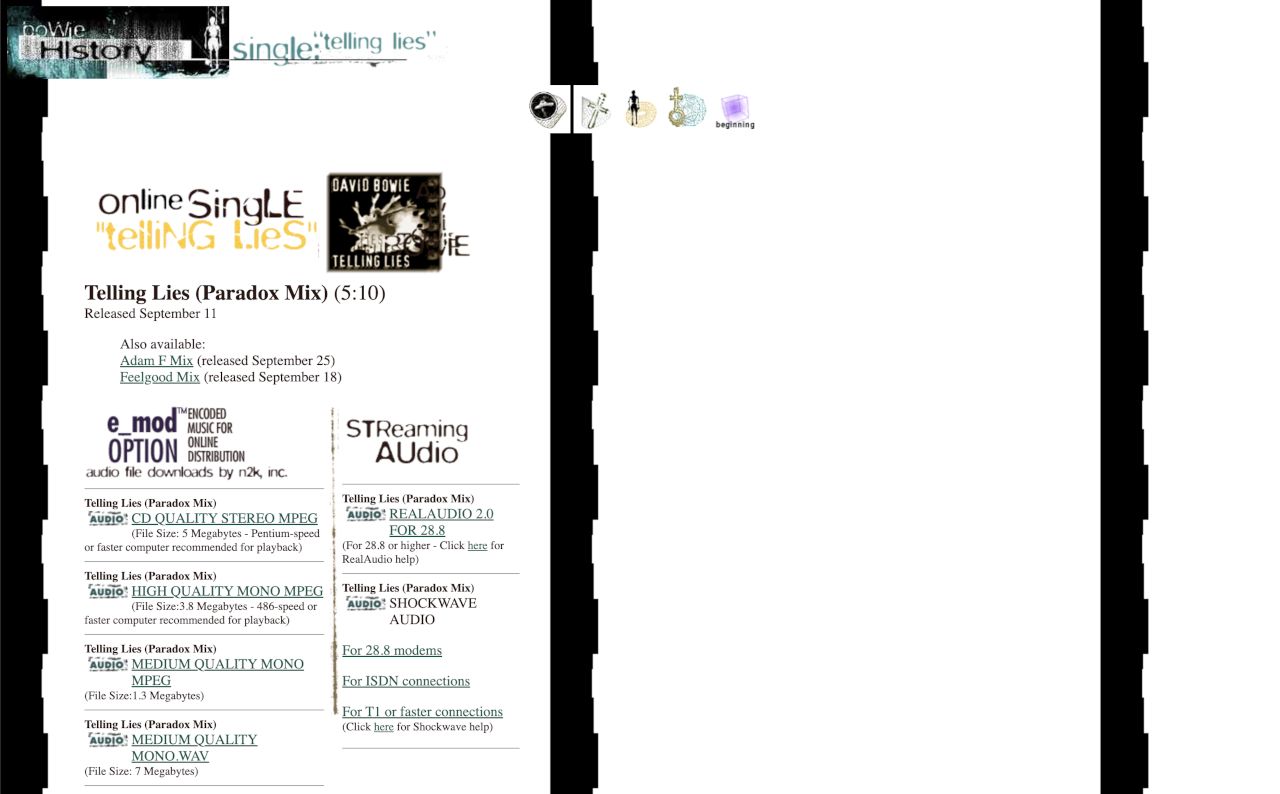
If you wanted higher quality, you could download a 16-bit CD-quality file that “took 45 minutes to grab with a 28.8 Kbps modem” (according to the Times). This was provided by Liquid Audio, a new company founded earlier that year by Gerry Kearby, a native of Redwood City, California. Kearby, who had previously worked as an audio technician for bands like The Grateful Dead and Jefferson Airplane, wanted to create an online distribution technology that included copyright protection features. To achieve this, the company partnered with Dolby Labs for the compression technology and added its own watermarking and digital signatures.
The Liquid Audio version of “Telling Lies” was a 9.7MB zip file, which opened to reveal a 9.9MB .la1 file (which stood for “Liquid Audio File”). That zip file would have taken at least 45 minutes to download over a 28.8 Kbps modem — but probably more than that, given how variable bandwidth was over dial-up. The user would then have needed the Liquid Audio player software to play the song.
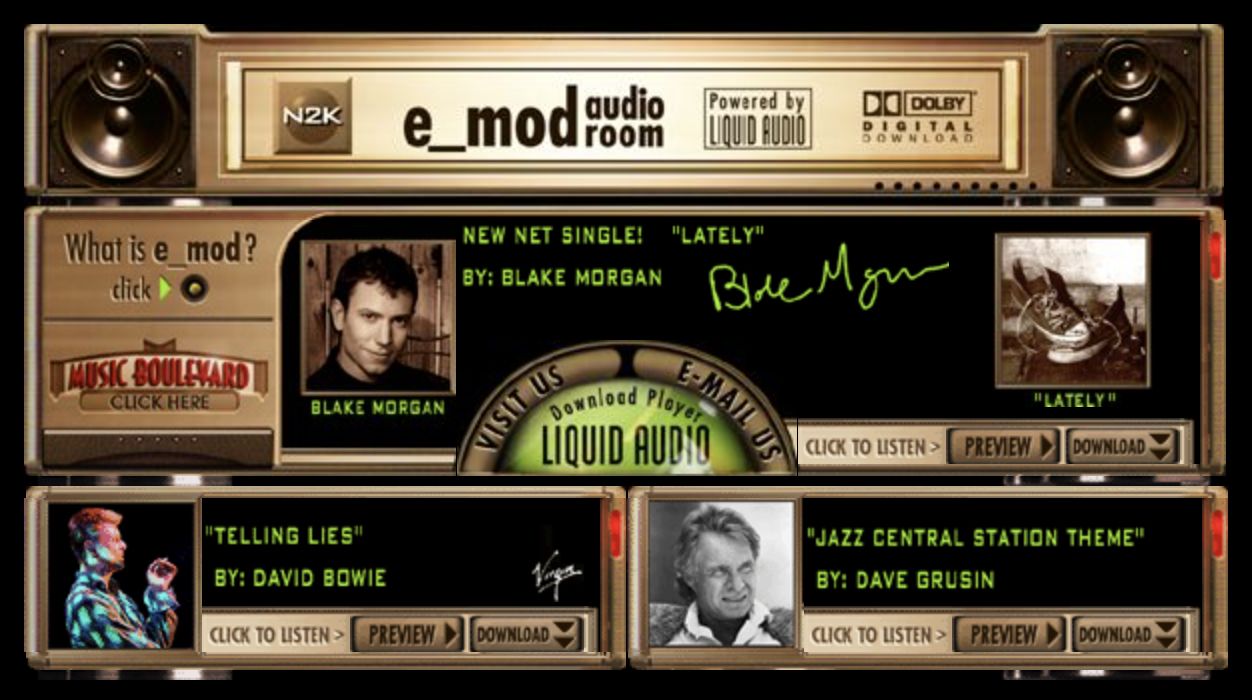
Some users reported not being able to access the site at all. “Maybe the site is just too busy or something, but all I've been getting are server errors and the like,” wrote one disappointed fan on alt.fan.david-bowie. But overall, enough people downloaded the song that it was deemed a success by Bowie’s managers. N2K’s Jon Diamond told the New York Times that 150,000 people had downloaded the song over the first two days, and by the end of the week the number was at 450,000. So despite the site errors, slow downloads, and buffering audio streams, as a marketing event it was a triumph.
As part of the launch day activities, Bowie took part in an online chat hosted on CompuServe. The gimmick was that there were “three David Bowie’s” in the chat room — with one being the real Bowie. The audience asked a bunch of questions, and each online Bowie would reply anonymously. Could the internet users tell which two were “telling lies”?
Nothing too revealing came of the chat, although (the real) Bowie was perhaps referring to his internet experiments when he wrote this: “I often plunge myself into the deep end of a situation just to see what happens. I find that the positive results of any experiment outweighs the negatives. Always put yourself in a situation where you're slightly out of your own depths.”
Internet Depths
So Bowie viewed the “Telling Lies” download as an experiment — another in a long line of boundary-pushing moments in his career — but he was happy to leave the finer details to his technical crew, N2K and Liquid Audio.
In the 21 September, 1996 edition of Billboard, in its regular digital section awkwardly named “The Enter*Active File,” Bowie admitted that the online single wasn’t his idea. “The genesis of the idea came from Virgin Records,” he said. “They are very hip on the Internet and wanted to do this.”
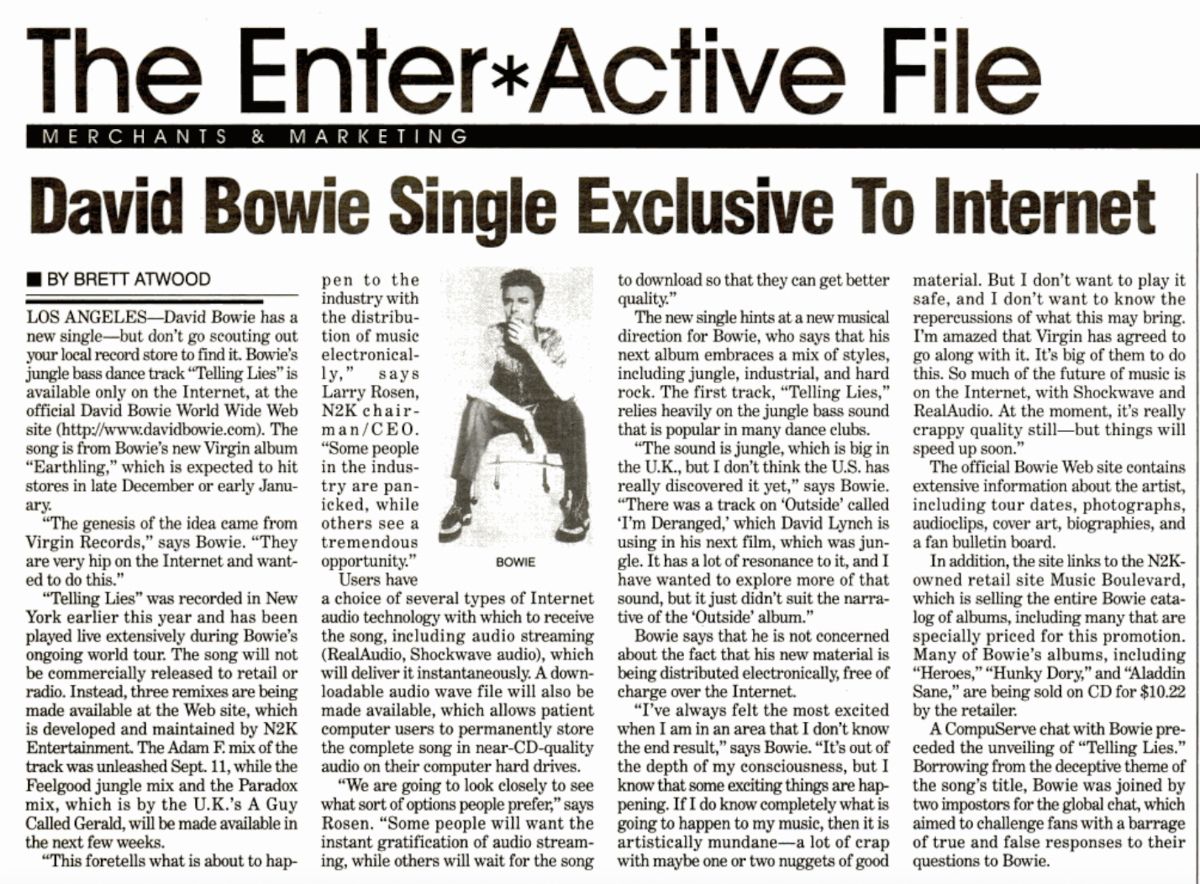
Bowie also acknowledged that he had no idea how the Internet would impact music in future.
“I’ve always felt the most excited when I am in an area that I don’t know the end result. It’s out of the depth of my consciousness, but I know that some exciting things are happening.”
He knew enough about the Internet, though, to realise that the streaming audio was “really crappy quality still” and the file download took far too long. But like any good dot-com marketer at the time, he assured Billboard readers that “things will speed up soon.”
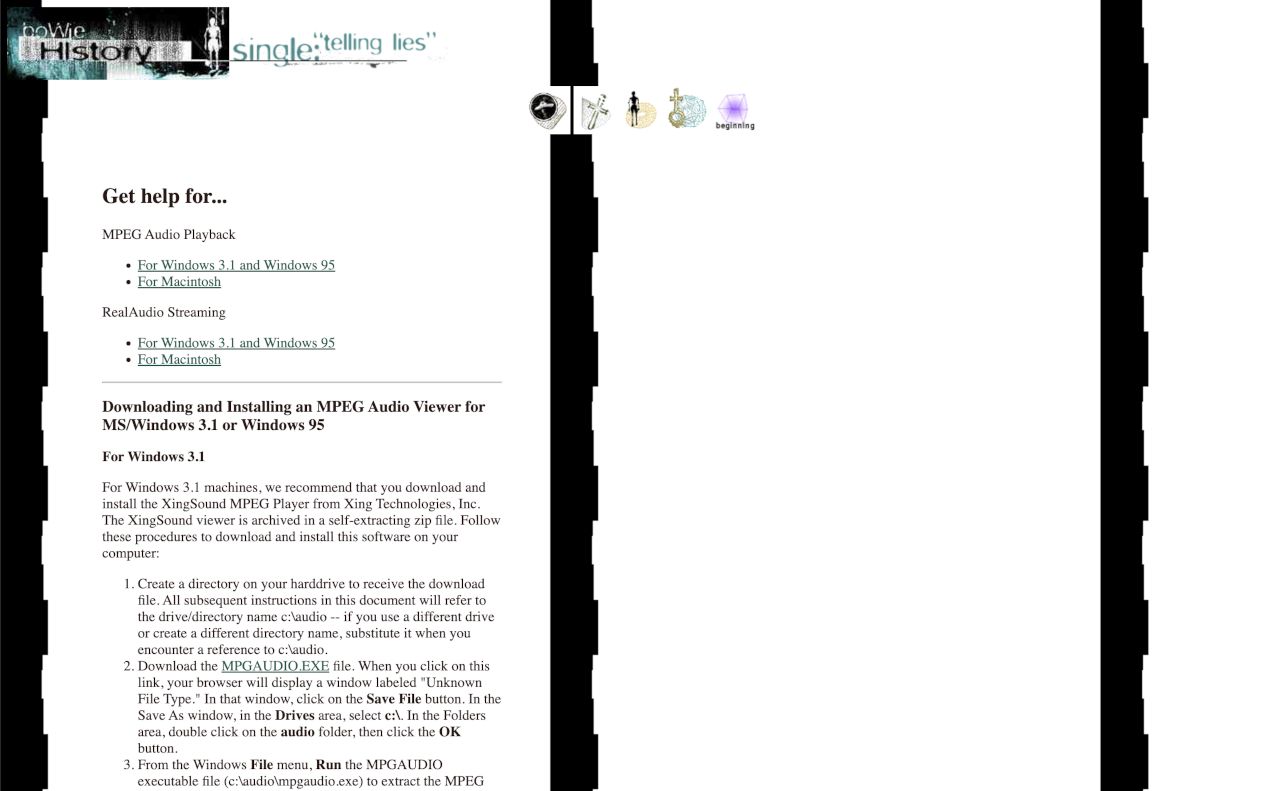
Of course, Larry Rosen was more bullish. “This foretells what is about to happen to the industry with the distribution of music electronically,” the N2K CEO told Billboard.
For Rosen, the “Telling Lies” download had been a successful experiment. And it was only the start of his ultimate ambition: to sell digital downloads online. However, the e-commerce part of the equation would take another year to implement (which we will cover in an upcoming post).
Buy the Book
My Web 2.0 memoir, Bubble Blog: From Outsider to Insider in Silicon Valley's Web 2.0 Revolution, is now available to purchase:
- Paperback, US$19.99: Amazon; Bookshop.org
- eBook, US$9.99: Amazon Kindle Store; Apple Books; Google Play
Or search for "Bubble Blog MacManus" on your local online bookstore.